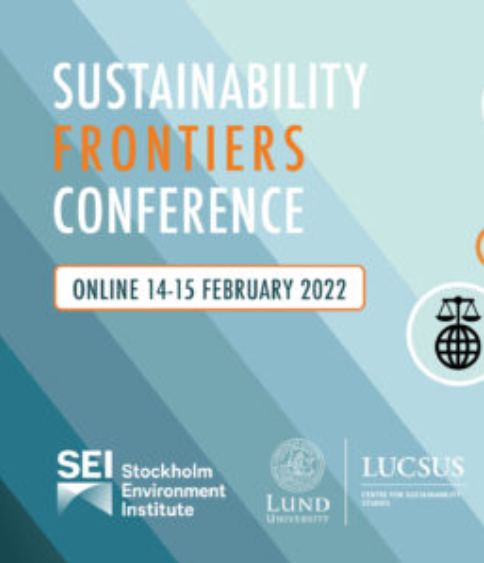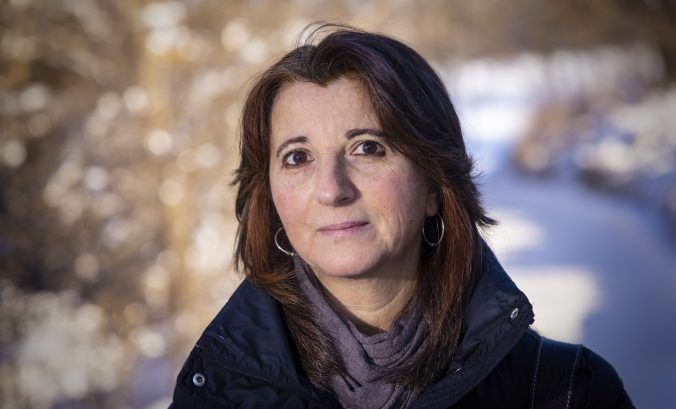This blog is part of a short series written by Laila Mendy, PhD student at NRHU, as she attended the Sustainability Frontiers conference.
Opening and Decolonial Perspective on Sustainability Science:
The day began with a demonstration of what much of decolonial scholars have been arguing for: by centring the perspectives and insights from decolonial scholars and indigenous researchers in the sustainability sciences conversation. Vasna Rasamar curated an panel discussion with Professor Lyla Mehta, Professor Bagele Chilisa, and Senior Lecturer Anna-Lill Drugge, all concerned with addressing what they see as a sustaining weakness of the sustainability sciences: the reproduction of colonial dynamics, practises and norms.
Rasamar began by asking each of the speakers to present what they consider to be an ongoing frontier in sustainability. These are summarised shortly below:
From Lyla Mehta: The term “Sustainability” came from German forestry management in the 1800s, which wanted to explore ways to continue resource extraction into the long term. From there it was consolidated and instrumentalised with – and alongside- other colonial practises of territory grabbing, othering and racialised categorisation, and removal of- and restriction of access to- indigenous peoples. Such practices adhere in much mainstream sustainable development today where, in the name of emissions reductions and conservation, indigenous and local communities continue to be restricted from living in their homes. Mehta highlighted instances of these in the REDD+ programme and other climate mitigation measures. In order to recognise that colonial practise is embedded in common socio-envionmental control mechanisms, there are three considerations to take:
- Firstly, seeking out hidden ways of knowing and being in this world. What knowledges and practises exist beyond the mainstream?
- Countering the narrative that unexploited land is waste. Grasslands, Mehta used as an example, are important contributors to biodiversity in South East Asia, and do not indicate wasted opportunity for afforestation or agricultural development
- To consider new ways of doing research: what are the assumptions underpinning much of what we problematise in development studies? Perhaps the grazing animal is contributing to soil health and the local eco-system.
Mehta concluded by explaining that decolonising sustainability science is also about looking at the institutions surrounding academia and considering how relationships and ways of working might be projecting harmful norms. Consider here, for example, the ways in which gender relations, power, race and ethnicity, sexuality, the languages spoken and – of particular relevance to the PhD student in Sweden today – the passports we hold. All these considerations implicate who might be invited to the discussion and how groups are convened.
For Bagele Chilisa the presentation considered how pervasive dogmas in Western thought were restricting people to see beyond certain assumptions of existence and reality. Building from what Mehta had initiated, Chilisa explained how decolonialism must address these dogmas in sustainability as understood in Western terms to not only open up for alternatives but to go beyond.
Firstly, Chilisa explained that Descartes and the idea of the individual could be pinpointed at the base of much practise and understanding in Western academia. The community and the people are forgotten: it is the individual that counts. Such an approach does not take into account the ways in which people are part of their community and part of the environment in which they live. This is problematic as teachings from the fields of Environmental Justice may not be heard beyond concern for the individual.
Secondly, the approaches to sustainability in Western academia can generally be categorised through four main approaches: the post-positivist turn to explain, predict and control; the conservative; the transformative; and the pragmatic.
Thirdly, that the environment is other-ised in Sustainability science, disregarding the essential embedded-ness of people and, therefore, discounting the valuable contributions that the environment can make towards knowledge creation.
Chilisa ended by asking open questions to the audience: what is development and for whom? What does it mean to live a good life? And, more fundamentally, how can we see and understand each other in a system that more and more pushes us as individuals?
The final speaker is Senior-Lecturer in Umeå, focusing on the Sami peoples. Anna-Lill Drugge, offered a similar list of three for the decolonial challenge in Sustainability science. Drugge’s approach focused more specifically on the experience of the Sami in Sweden, but might resonate with other peoples around the world.
The first insight looked at the exploitation of natural resources. Drugge explained that much of the green transition in Sweden poses the move from fossil fuels to renewable energy as the solution to the sustainability and climate issues. However, Drugge points out that too few reflect on which land and which natural resources are chosen in this transition. In the case of wind power, many of the potential areas of interest for development are on indigenous land. Despite the continued dependence on these areas for Sami livelihoods, development often goes ahead. Here, Drugge concludes, it is important to simply raise awareness of ongoing colonial structures in decision-making. Decolonialism is not possible if colonialism is not addressed first.
Secondly, the history of many research fields are problematic and foundational to ongoing conflicts today. Drugge explained that in recent history in Sweden the study of race biology categorised Sami people, separating the mountainous peoples from the forest peoples and contributing to existing conflicts to this day. Recognising the roots of today’s conflicts in historical processes of research was, for Drugge, another important insight for the decolonialism of Sustainability science.
Thirdly Drugge explained that the lack of knowledge meant these challenges will continue in to the future. Much Swedish knowledge of Sami people is based on stereotypes, due to a neglect on the subject in the national curricular. In the long run, these students will work in the green transition of tomorrow, which risk carrying and replicating colonial assumptions into the future.
The second block of the Decolonial session discussed questions posed by the moderator and the audience. The discussion mainly concerned concrete tools, approaches and methodologies to implement decolonial thinking in practise in academia.
Drugge began by admitting that doing is particularly challenging, but the first step is to acknowledge the field and work of indigenous scholars, particularly those whose work concerns relationships. These are not only important in sustainability and in relation to indigenous people, she suggested, but concern research ethics more widely.
Chilisa echoed this by explaining that many of the tools available can help communities and groups avoid the check-boxing so common in sustainability – think, why is the commissioner doing this study and will it actually be used? – and rather looks at the processes and intentions behind them.
Thirdly, Mehta cautioned against thinking in terms of a tool box and a check box, positioning decolonialism as an ongoing processes of self-awareness that should not be turned into another buzzword – not unlike what has happened to sustainability. That said, she went on to suggest methodologies from feminism for methods to raise the voices of the unheard and make visible the invisible, as well as practises from the field of Science and Technology Studies. Within the academic institutions themselves, it is making aware that power imbalances exist and continue to exist when those with the best of intentions can perpetuate inequality infrastructures.
In relation to my own doctoral work, much from this discussion has resonated with me. I am currently working on the idea of “overcoming delay” in the quest to reach Net Zero 2045 in Sweden. Considering recent review on the thirty years of political and scientific work done on climate change and the failure to bend the emissions curve, this feels like an important piece of work to contribute towards overcoming inertia and to avoid a tobacco industry-like conflict with climate policy-making. But there are deeper challenges in taking such a stance towards the future and towards the goal itself.
Firstly, the idea of overcoming delay towards a future assumes certain futures are viable and desirable, and that others are not. To overcome delay towards a certain future is, arguably, to depoliticise it. I think this is problematic because it questions the democratic nature of futures-making. With such an urgent need for emissions reductions, slowing down and questioning the idea of whose contribution towards such goals and targets is important. It indicates which voices are excluded and which injustices may be carried in to the future for the good of action on climate change?
Such a cause for concern in terms of time is strengthened by the implication of place in the goal of Net Zero itself. Climate neutrality indicates a necessary shift in infrastructure, which for Sweden may well mean a continued expansion of renewable energy development into Sami land. It also suggests that off-setting emissions beyond Sweden could perpetuate certain colonial mindsets about land access globally, its usage and whose claims to land are more important.
I am not sure how to reconcile the decolonial lens with the urgency narrative of climate action. However, the discussion this morning gave much food for thought on this conflict.
This blog is part of a short series written by Laila Mendy, PhD student at NRHU, as she attends the Sustainability Frontiers conference. Click here for part two on Degrowth



